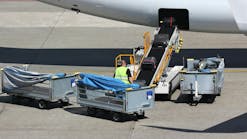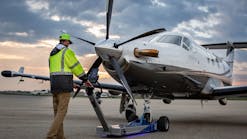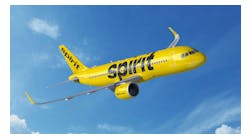Transportation Secretary Ray LaHood on Conclusion of the Preliminary Phase of the Continental Tarmac Delay Investigation
U.S. Transportation Secretary Ray LaHood announced today that his department has concluded the preliminary phase of its investigation into the Aug. 8 tarmac delay by Continental Airlines on a flight operated by ExpressJet Airlines. Passengers were stranded in a plane on the ground in Rochester, MN from 12:28 a.m. to about 6:00 a.m. with only pretzels provided by the carrier to eat.
“We have determined that the Express Jet crew was not at fault. In fact, the flight crew repeatedly tried to get permission to deplane the passengers at the airport or obtain a bus for them,” Secretary LaHood said.
“The local representative of Mesaba Airlines improperly refused the requests of the captain to let her passengers off the plane. The representative incorrectly said that the airport was closed to passengers for security reasons, which led to this nightmare for those stuck on the plane,” he said.
Mesaba is a wholly owned subsidiary of Northwest Airlines, which is a wholly owned subsidiary of Delta Air Lines.
The representative of Mesaba – the only carrier able to assist Continental at the airport – said that the airport was closed to passengers, apparently because there was no one from the Transportation Security Administration (TSA) available to screen passengers. In fact, TSA procedures allow passengers to get off the plane, enter the terminal and re-board without being screened again as long as they remain in a sterile area.
“There was a complete lack of common sense here,” Secretary LaHood said. “It’s no wonder the flying public is so angry and frustrated.”
Members of the Department’s Aviation Enforcement Office interviewed passengers, the flight crew, airport personnel and others with knowledge of the situation. They also listened to audio recordings from the aircraft and the dispatcher. In addition, Continental’s customer service commitment, contingency plan for flight delays and contract of carriage were reviewed.
“This is one of the most thorough investigations ever conducted by the Department’s Aviation Enforcement Office,” LaHood said.
The Aviation Enforcement Office is considering the appropriate action to take against Mesaba as it completes the investigation, which it expects to conclude within a few weeks. The Department has proposed regulations requiring airlines to adopt contingency plans for lengthy tarmac delays and to incorporate these plans in their contract of carriage, and asked for comment on whether it should set a uniform standard of time after which carriers would be required to allow passengers to deplane. The findings from this investigation will be used to help formulate a final rule that will provide better protection for airline passengers.
Finally, the preliminary investigation showed that while the crew of the ExpressJet flight did all it could to assist the passengers, more senior personnel within Continental or ExpressJet should have become involved in an effort to obtain permission to take the passengers off the plane.




